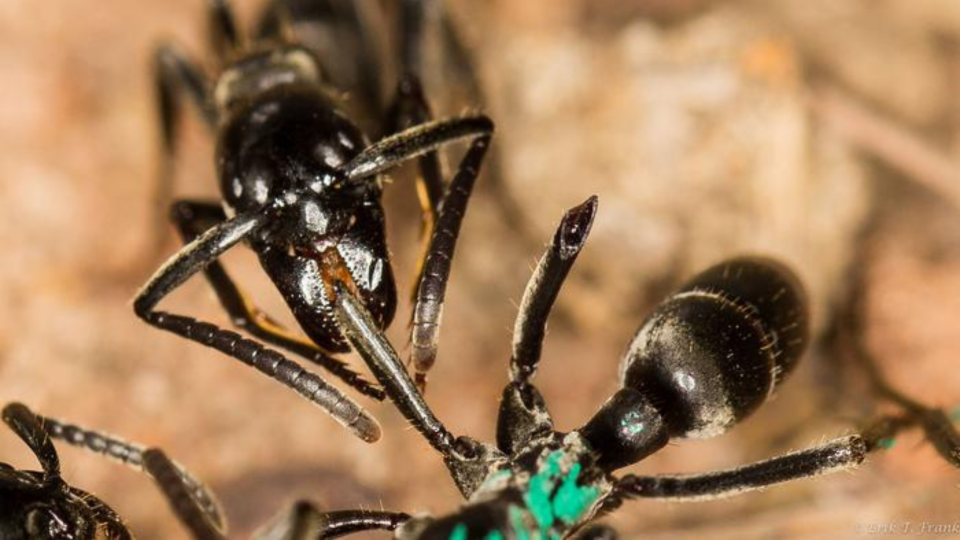Ants can make antibiotics they use to treat infected wounds

Matabele ants (Megaponera analis), commonly found south of the Sahara, eat one thing and one thing only: termites.
But termites won't go down without a fight, which means the ants commonly sustain injuries when trying to secure a meal.
Like other creatures, wounded ants are susceptible to infection, which can have dire consequences. So, they've developed a survival strategy, learning to differentiate between infected and uninfected wounds and administering self-produced antibiotics to ward off potential health complications.
It's an effective tactic: By creating an antibiotic from one of their own glands above the thorax, researchers found ants can cut mortality due to an infected wound by up to 90 per cent.
The secretions, which come from the metapleural gland, contain dozens of anti-microbial and wound healing components.
This discovery comes from research by Dr. Erik Frank of Julius-Maximilians-Universität (JMU) Würzburg and Professor Laurent Keller from the University of Lausanne. The findings are documented in Nature Communications.
"With the exception of humans, I know of no other living creature that can carry out such sophisticated medical wound treatments," Dr. Frank said In a statement.

A Matabele ant tends to the wound of a fellow ant whose legs were bitten off in a fight with termites. Caption and photo: ((Erik Frank / University of Wuerzburg))[Erik Frank / University of Wuerzburg]
A bacteria that affects humans, too
When an ant wound becomes infected, the pathogen Pseudomonas aeruginosa is the likely culprit. It's an agent that can also infect humans, and certain strains have exhibited antibiotic resistance.
Researchers hope to expand their research, looking at wound management behaviors across several ant species, hoping to eventually develop new human antibiotics.
Header image: File photo for illustration purposes only. Via Canva Pro.

